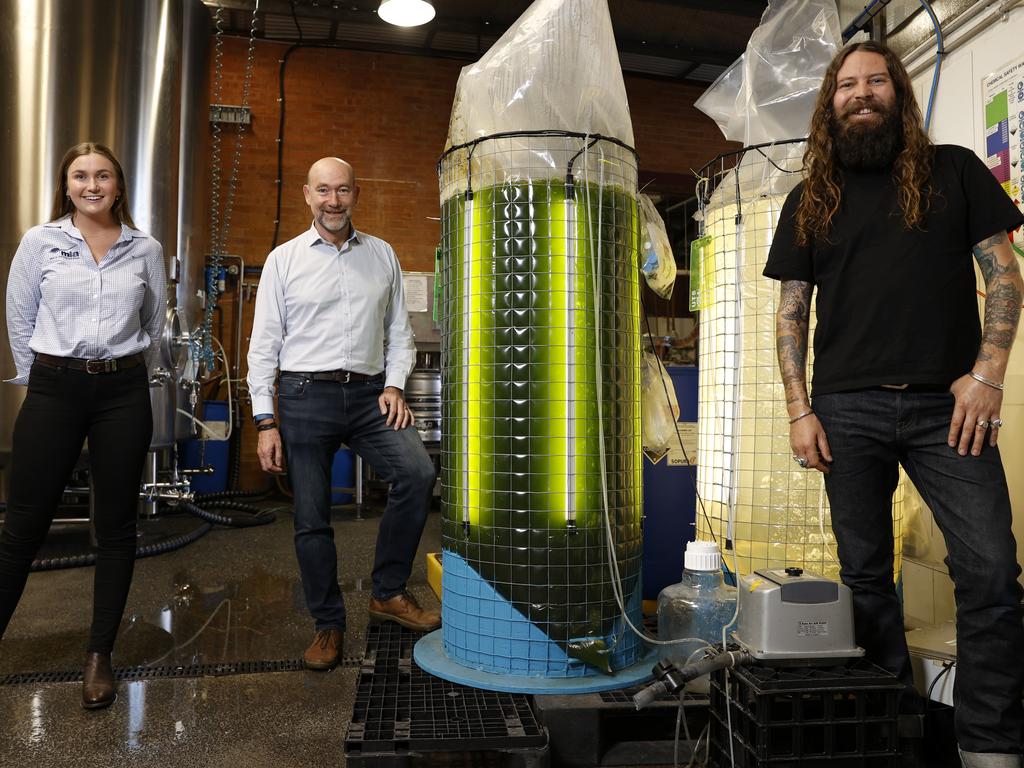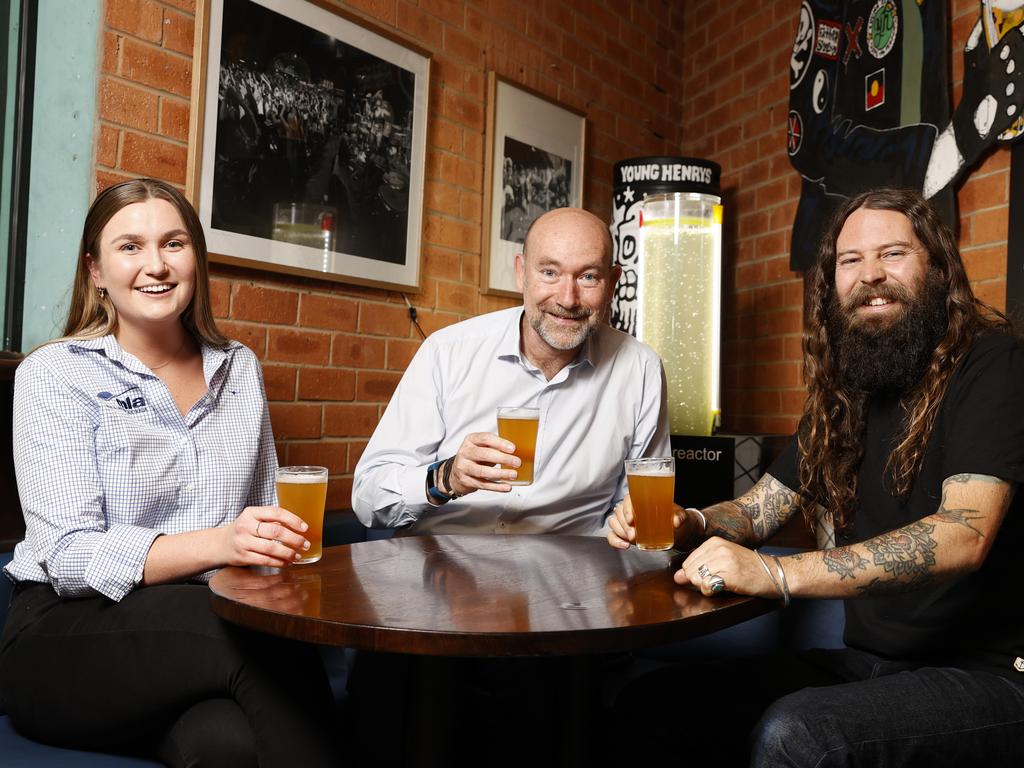How beer could help lower our emissions
Beer can solve a lot of the world’s problems, as any connoisseur will tell you. Now one Australian brewer is out to show how we can bring down our greenhouse gas emissions.
Waste products from brewing beer could be used to drive down methane emissions in livestock if a remarkable collaboration between beer-makers, scientists and the meat industry hits its targets.
In 2018 the producers of Young Henry’s ale installed two 400-litre bioreactors in their brewery in Newtown in Sydney’s inner west, using algae to capture the carbon dioxide emissions from the fermentation process.
The algae thrive on the carbon dioxide, producing more algae and expelling only oxygen.
Scientists from Sydney’s UTS are now taking that algae, along with the spent malt and barley grains used to produce beer, and experimenting to see whether they can produce a livestock feed that results in lower methane emissions when the animals that eat it burp and fart.
Livestock is responsible for 11 per cent of Australia’s total greenhouse gas emissions.
A seaweed algae has been shown to reduce cattle methane emissions by as much as 98 per cent when used as a livestock additive in experimental conditions, and there are hopes the brewery algae can produce a similar result, with no danger to the animals.
“This is a fantastic example of the circular economy, where we can take two waste products, CO2 and brewers’ spent grain, and make a new product that can transform the meat and livestock industry,” Professor Peter Ralph from UTS said.
“We’re removing carbon dioxide from one industry, and in the other industry we’re removing methane. It’s a double hit from the same organism.”

Young Henry’s co-founder Oscar McMahon said the company’s work in using algae to capture its carbon emissions had already got the beverage industry’s attention.
“We’ve been contacted by other brewers, winemakers and distillers from all around the world,” he said. “I won’t mention any brand names, but they are from very small start-up operations, to some of the significant players. What’s really exciting about this is this is a solution that could be useful for any scale brewery.”
While one brewery’s worth of algae was not going to make much of a difference, the cumulative impact of the process could be significant, he said.
“One of the awesome things about Young Henry’s is that we’ve grown to a size where we get a little bit of an economy of scale, but we’re also totally small enough to be nimble and to do some wacky things,” Mr McMahon said.
Young Henry’s staff were as enthusiastic about the potential of the algae project as they were about launching new types of beer, he said.
Doug McNicholl, the project manager for sustainability and innovation at Meat and Livestock Australia (MLA), said if all went well, livestock feeds using brewery algae could be a commercial reality within about five years.

“Part of the UTS project is understanding the impacts of the active compounds in those algaes, so that we achieve the objective we’re looking to achieve, which is reducing livestock methane, but we don’t trade that off with other important issues like the economics of feeding, the animal health and wellbeing, and the eating quality of the meat or milk,” he said.
“That’s why it can take some time for these technologies to come to market, because there’s a few hoops to jump through to get us there.”
The environmental impact of eating meat is a growing concern for many consumers, and the industry is acutely aware of this sentiment.
Last year the MLA set a target of net zero emissions by 2030.
The organisation has also invested nearly $50 million in new technologies that could help lower emissions, Mr McNicholl said.
Originally published as How beer could help lower our emissions
Read related topics:Mission Zero




